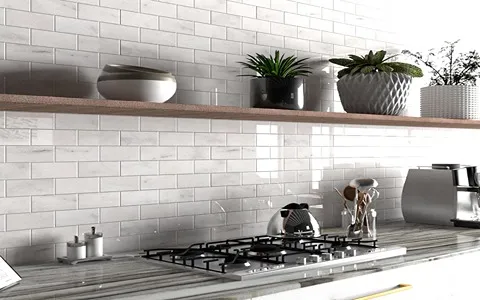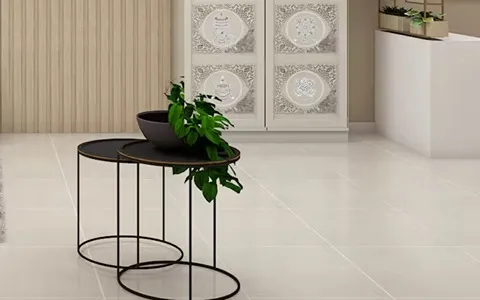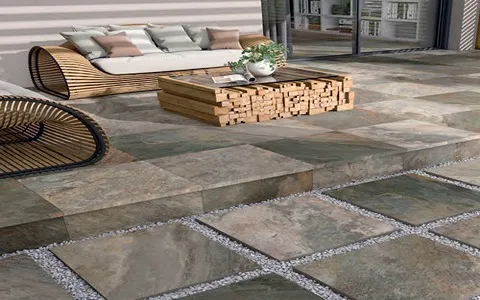Ceramic tiles are popularly used to floor kitchens and bathrooms because they are considered to be waterproof but are they?
Let’s discuss it.

What are Ceramic Tiles Made of?
The ancient Egyptians, Babylonians, and Assyrians were the first people to have ever built tiles.
Tiles dating back all the way to 2600 B.C. are still as colorful and glazed as day one.
Nonetheless, in our days, the manufacturing of tiles has turned into a large industry, with most of the work being done by huge automated machines.
Over the centuries, one thing remains the same though.
Ceramic tiles of all kinds are made from a mixture of different clays and minerals.
That being said, some tiles, like porcelain tiles, are made from specific types of clay and under higher temperatures, as a result of which, they are more resistant to heat and water absorption.
However, the method by which ceramic tiles are made are all the same.

Waterproof or Water-Resistant?
Technically speaking, ceramic tiles are not waterproof.
That is because all tiles have a porous surface, which allows droplets of water to be absorbed over time.
But the amount of water absorption varies from one tile to another, depending on the minerals and heat used in their construction.
Is that a concern though?
No.
The amount of water absorbed by tiles is less than 7% percent of their body weight.
And this percentage decreases to 0.001% in the case of porcelain tiles.
Plus, for water to be absorbed in ceramic tiles, it has to remain on the tiles for a long period of time.
Now, are ceramic tiles water-resistant?
Definitely yes.
That explains why we see ceramic tiles being used in every bathroom and kitchen, where moisture is our number one concern.
So rest assured in tiling your kitchen and bathroom floors with no concerns at all.

Ceramic Tiles Waterproof
In addition to ceramic tiles, porcelain tiles are another popular choice for homeowners seeking a durable and stylish flooring option.
Porcelain tiles are made from a denser and more refined type of clay that is fired at higher temperatures, resulting in a material that is even more resistant to water, stains, and scratches.
Porcelain tiles are suitable for both indoor and outdoor use, making them a versatile choice for any room in your home.
Another type of tile that has gained popularity in recent years is natural stone tile.
Natural stone tiles, such as marble, granite, slate, and travertine, add a touch of luxury and sophistication to any space.
Each type of natural stone has its own unique color variations and patterns, making them a one-of-a-kind choice for homeowners looking to create a statement in their home.
While natural stone tiles require more maintenance than ceramic or porcelain tiles, their timeless beauty and durability make them a worthwhile investment.
Glass tiles are another stylish option for adding a touch of elegance to your home.
Glass tiles are available in a variety of colors and finishes, ranging from glossy and reflective to matte and textured.

Ceramic Tiles; Maintenance and Care
Even though ceramic tiles are definitely water-resistant, you’ll need to pay due attention to the sealing and grouts.
After all, tile flooring contains more than just one tile.
If water leaks into the tile, the adhesive holding the tile to the cement will deteriorate over time.
While it may appear that only a few tiles in your flooring are damaged, the entire subfloor is in fact ruined.
So it is always a good idea to make sure sealing and grouting are done perfectly.
And finally, make sure you regularly wipe out the water on the floor and you won’t have any issues for decades.

